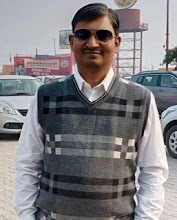DEMO. POL.(IX) -LESSON-1
WHAT IS DEMOCRACY AND WHY?
(LESSON NOTES)
__________________________________________________________
v INTRODUCTION
Ø
We
have read about different countries in the first lesson and find out that in
some countries people have the rights and in some countries people does not
have the rights. We also see that held elections regularly are not the feature
of democracy. In this lesson we will discuss about the various features of
democracy with suitable example. We also discuss about the need of democracy in
the world.
v
SIMPLE DEFINITION OF DEMOCRACY
Ø
According
to Abraham Lincon:-“Democracy is a rule of the people, for the people and by
the people”.
Ø
The
word democracy comes from a Greek word ‘Demokratia’. In Greek ‘demos’ means
people and ‘kratia’ means rule. So democracy is rule by the people.
v FEATURE OF
DEMOCRACY
Ø
Democracy
is a form of government in which the rulers are elected by the people. So
§
Myanmar
where the army rules, Dictator Pinochet’s rule in Chile, or President N krumah’s
rule in Ghana was not democratic. They were not chosen by the people.
§
Hereditary
kings, like the king of Nepal or Saudi Arabia, are also not democratic rulers. They
rule because they were born into noble families.
Ø
In
a democracy final decision making power must rest in those who are elected by
the people.
§
In
Pakistan, President Musharraf has the power to dismiss national and state
assemblies; so the final powers rest with the army and the General himself. We
cannot call it a democracy.
Ø
A
democracy must be based on a free and fair election where those currently in
power have a fair chance of losing.
§
In
China, elections are held for its Parliament. But all the candidates are either
members of Chinese Communist Party or eight smaller allies of the party.
§
In
Mexico, elections have been held every six years since 1980. But the same
party, PRI, has won the elections. Obviously, there has been rigging and
mal-practices, with freedom, denied to opposition.
§
In
both the examples elections are held but one cannot claim that they are free
and fair.
 |
| DO YOU THINK THESE AFFECTED IDEAL DEMOCRACY |
Ø
In
a democracy each adult citizen having one vote and each vote has one value.
Democracy is based on the fundamental principle of political equality.
§
Countries
like Saudi Arabia, Estonia and Fiji in some or other way deny voting rights to
certain sections of its population.
Ø
A
democratic government rules within limits set by constitutional and citizens’
rights.
§
A
democratic government cannot do what it likes after winning the elections. It
has to respect certain basic rules and is accountable not only to the people
but also to other independent officials.
§
Robert
Mugabe is President of Zimbabwe. He is ruling there for last 38 years. But in
many incidences, he has behaved in an undemocratic way and even above the law.
v
WHY DEMOCRACY?
v POINTS AGAINST
DEMOCRACY
Ø There has been
criticism of democracy by various people. The charges are that :
§ It creates
instability by changing its leaders frequently.
§ Democracy is
about power play and political competition. There is no scope for morality.
§ So many people
have to be consulted before any issue is solved. It leads to delay.
§ Elected leaders
do not know the best interest of the people.
§ It leads to
corruption for it is based on electoral corruption.
§ Ordinary people
do not know what is good for them, so decision making should not be left to
them.
v ARGUMENTS FOR
DEMOCRACY:
Ø
Many
people favour the democracy around the world. they give their ideas that why democracy
government is best in all form of government. Their arguments for democracy are
these-
§
Democratic
government is a more accountable form of government.
§
Democracy
improves the quality of decision making.
§
Democracy
provides a method to deal with differences and conflicts.
§
Democracy
enhances the dignity of citizens.
§
It
allows us to correct its own mistakes.
So we can say
that democracy is the best form of government in the world.
v BROADER MEANING
OF DEMOCRACY
Ø
Democratic
ideas can be practised in various decision-making processes. In broader sense
no country can be completely democratic.
Ø
The
features of democracy are only minimum conditions. As in presently mostly
country have the representative democracy which means rule through the elected
representative, not directly by all people.
Ø
A lot can be done towards achieving real
democracy. Every democracy has to try to realize
the ideals of a democratic decision making.
Ø
This
cannot be achieved once and for all. This requires a constant effort to save
and strengthen democratic forms of decision making.
Ø
The
success of democracy depends not just on what the rulers do, but mainly on what
we, as citizens, do. Democracy depends on active political participation by all
the citizens.



Sir is this also we have to write in our N books
ReplyDelete?????
YES YOU CAN WRITE THE NOTES IN YOUR NOTEBOOK DURING THIS TIME AS IT IS VERY HELPFUL.
DeleteSir we have to write the notes of ch-1 or ch-2 of pol science as u have published here????
DeleteAs u had send the notes of geo. ch-1 in our school grp(KV-9-A) We have to write the notes of ch-1 or ch-2 of pol. science as u have published here
ReplyDelete